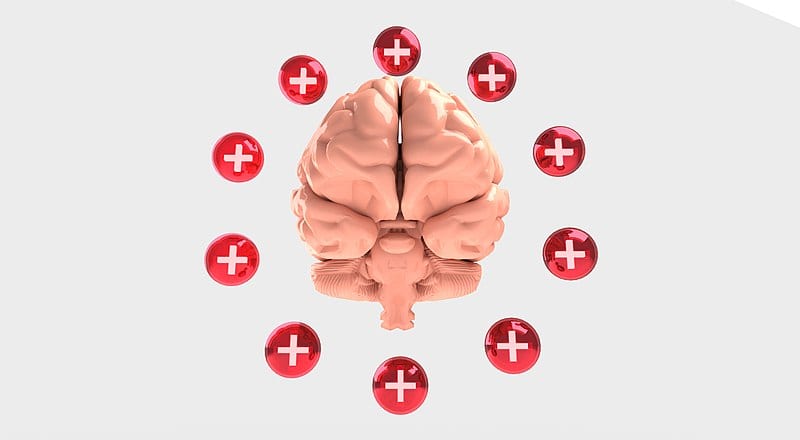Michelle Nortje is a clinical psychologist with a private practice in Johannesburg. She recommends everyone takes the following steps to proactively managing their mental health during lockdown, and in the wake of the aftereffects of COVID-19.
The current global pandemic has created multiple layers of consequences. There are huge individual and global health, financial, economic, systemic, and political repercussions that we will all be grappling with in the weeks and months to come. There have been tremendous changes to how our societies function and a loss of normalcy.
“Anxieties, worries, irrationality, fears, uncertainties, a sense of collective loss or grief, confusion, powerlessness, panic, a loss of safety and depression are expected experiences of many in facing the possibly devastating aftereffects of COVID-19. These can be incredibly overwhelming experiences, both as individuals and as members of larger communities and countries.”
Along with these adjustments is an emotional element. Alongside a biological epidemic is also the possibility of an epidemic of fear. Anxieties, worries, irrationality, fears, uncertainties, a sense of collective loss or grief, confusion, powerlessness, panic, a loss of safety and depression are expected experiences of many in facing the possibly devastating aftereffects of COVID-19. These can be incredibly overwhelming experiences, both as individuals and as members of larger communities and countries.
There are ways, however, in which we can help ourselves, our families and our communities to understand and manage our mental health in the present and in the next few months. It is important to prioritise and protect our mental health during such unprecedented times. Here are a few ways to assist in curbing your anxiety during the COVID-19 pandemic:
1. Don’t avoid your feelings
If we can name it, we are more able to manage it. Labelling and acknowledging our emotional states can allow us to feel more in control of our experiences, rather than feeling like our emotions are controlling us. Try to take some time each day to notice how you are feeling and give the feeling a name. By doing so we can allow the feeling to be acknowledged and pass on.
“Labelling and acknowledging our emotional states can allow us to feel more in control of our experiences.”
Bottling up feelings has the opposite effect and can lead to feeling emotionally dysregulated or feelings spilling out onto other people around us. For example, denial is something we may all have experienced lately – This virus won’t affect us directly. Acknowledging this way of thinking, a way to protect our minds from a harsh reality, can help lead us to a more accepting stance – This is really happening and what can I do to help manage this. There is a feeling of control in acceptance – I can keep safe by following the lockdown rules, washing my hands regularly and working remotely.
2. Self-care
We need to take extra care to build up our emotional and psychological strengths and resources at times of worry. Filling up our cups means we can have additional emotional resources available to stay calm, communicate effectively and comfort others.
Self-care is different for different people. It may mean taking some time to focus on your hobbies (painting, reading or baking), or it may be doing some exercise (which can still happen at home), or having a conversation with a trusted friend.
3. Maintain your support structures
Although we may not be able to meet with family and friends in person, we can continue to draw strength from our connections using online facilities. You can arrange online coffee dates with friends or have a video call with a family member. Staying connected to others is an important way to reduce feelings of isolation and loneliness.
4. Therapy
Many psychologists are continuing to offer their services using online methods. This allows us to continue to receive much needed support and guidance while still remaining healthy and socially responsible.

5. Take control of those things you can
In the current situation, there are many external events that are far beyond our control, like the exchange rate and whether or not your neighbour is following social distancing. Worrying about these factors outside of our realm of control can heighten our anxiety. Instead, we can try to take control of smaller things within our capacity and space. For example, you can take control of washing your hands more regularly, writing up your shopping list or creating a daily routine for the lockdown period.
“Worrying about these factors outside of our realm of control can heighten our anxiety. Instead, we can try to take control of smaller things within our capacity and space.”
6. Set up a new routine and schedule
Feeling in control of one’s daily actions can build up a stronger sense of empowerment over time. This can be done by creating a new routine rather than being taken up by the swirls of chaos around us. For example, it is still important to go to bed and wake up at the same time. Sleep routines can easily be thrown out amidst anxious feelings, and poor-quality sleep exacerbates a low or anxious mood.
“Try to focus on one thing each day to feel a sense of achievement, accomplishment and movement.”
7. Set a daily goal for yourself
During lockdown one can begin to feel bored, stuck or restless. Try to focus on one thing each day to feel a sense of achievement, accomplishment and movement. For example: try out a new recipe; research a new hobby; read a few pages of a book; make the bed; change that lightbulb you’ve been meaning to change for a while…
8. Mindfulness
Mindfulness is a helpful psychological tool to allow us to remain present in the here-and-now without letting our minds get caught up in catastrophising or worst-case scenario thinking about a future that we cannot yet know about. This can be very powerful in lessening the overwhelming nature of our uncertainties of the future. We can then replace worst-case scenarios with those that are more realistic.
One way to practice mindfulness each day or when anxieties seem more intense is to focus on our five senses. Notice and describe in detail to yourself the things in your environment that you can see, smell, taste, touch and hear. When focusing on these things, we are replacing those worst-case images that stir up anxiety. There are several mindfulness and meditation apps available such as Headspace, Calm or Stop, Breathe & Think.
“There is a lot of fake news circulating about the pandemic that only serves to worsen people’s experiences of hysteria, suspicion and panic. Instead, focus on only getting updates from reputable and scientific sources, such as the WHO, and fact checking other information that may be shared with you.”
9. Limit social media and news access
Try to limit the amount of news you are receiving on social media or television. There is a lot of fake news circulating about the pandemic that only serves to worsen people’s experiences of hysteria, suspicion and panic. Instead, focus on only getting updates from reputable and scientific sources, such as the WHO, and fact checking other information that may be shared with you. This allows us to make more informed decisions, and not decisions based on fear and disinformation.
It can be easy to take on the dysregulation of others around us (people panic-buying and leaving grocery shelves depleted and bare) and we need to be conscious of putting in boundaries to know the difference between our own feelings and those of others.
10. Have fun
Amidst all the anxiety-provoking news, changes and lockdown protocols, we also need to create some balance. We can still try to make time for fun light-hearted activities. Play board games with your children, spend time soaking up the autumn sunlight, build a puzzle…
11. Feel grateful
Many of the things on this list of tips makes an assumption about a level of access to technology, comforts and a home to retreat to in such a time of unsafety and worries about our health. Many people in our communities do not have running water to wash their hands and sanitize, they do not have enough money to stock up on food, they do not have spare change to buy art supplies to stay busy. Keep in mind that sometimes helping others can create feelings of empathy, connection and care.
A positive psychology tool we can use to help manage our worries is a gratitude journal. Each day write down five things to be grateful for – taking a short walk, hearing the birds continue to chirp, watching a sun set each evening, having electricity to cook a meal, being able to call a friend. Try this out with family and friends. It can help us realise those things around us and within us that can help us to weather this storm. Compassion, kindness, appreciation, patience and empathy can be very healing in the face of aggression, hoarding and panic.
Images from Quince Media via commons.wikimedia.org.




